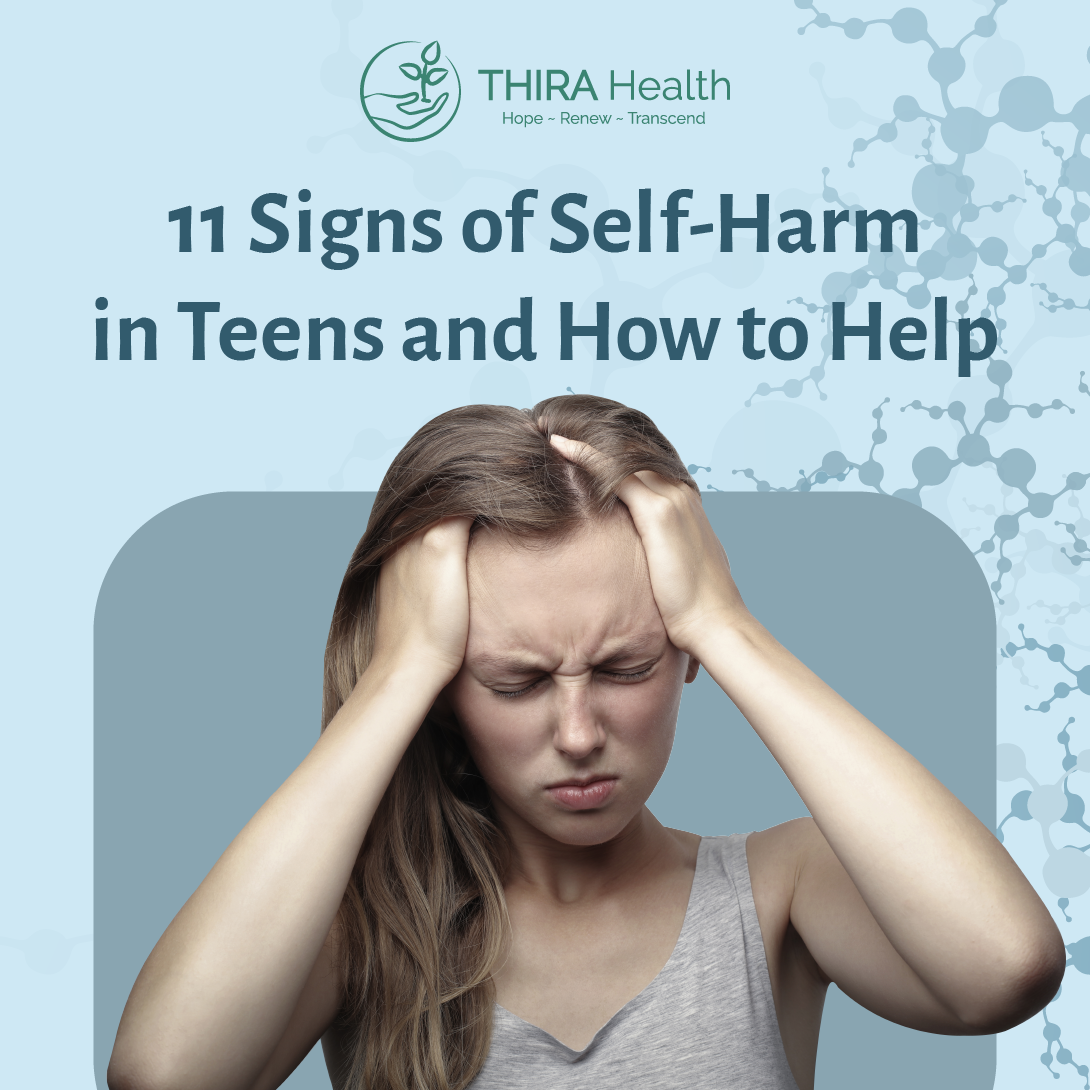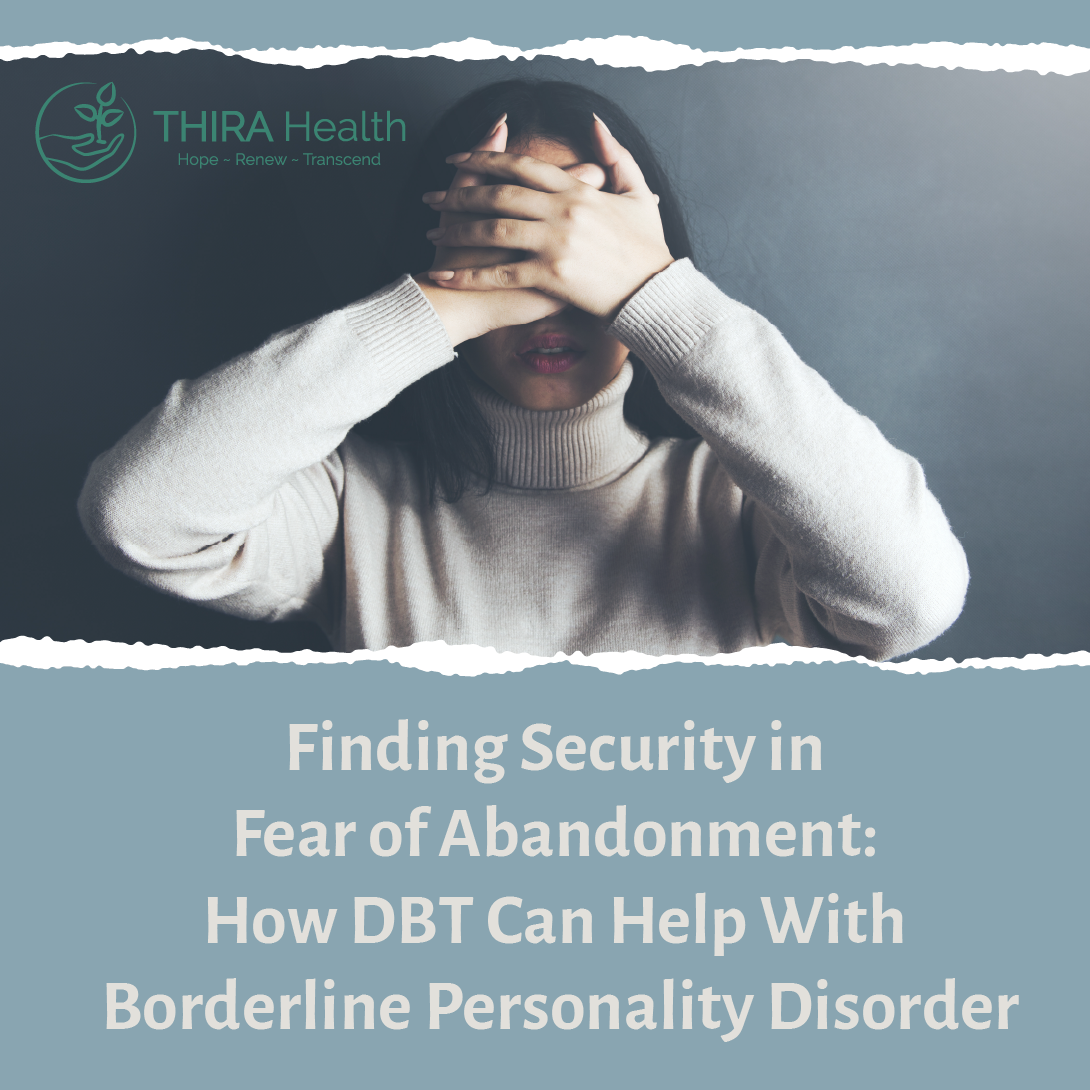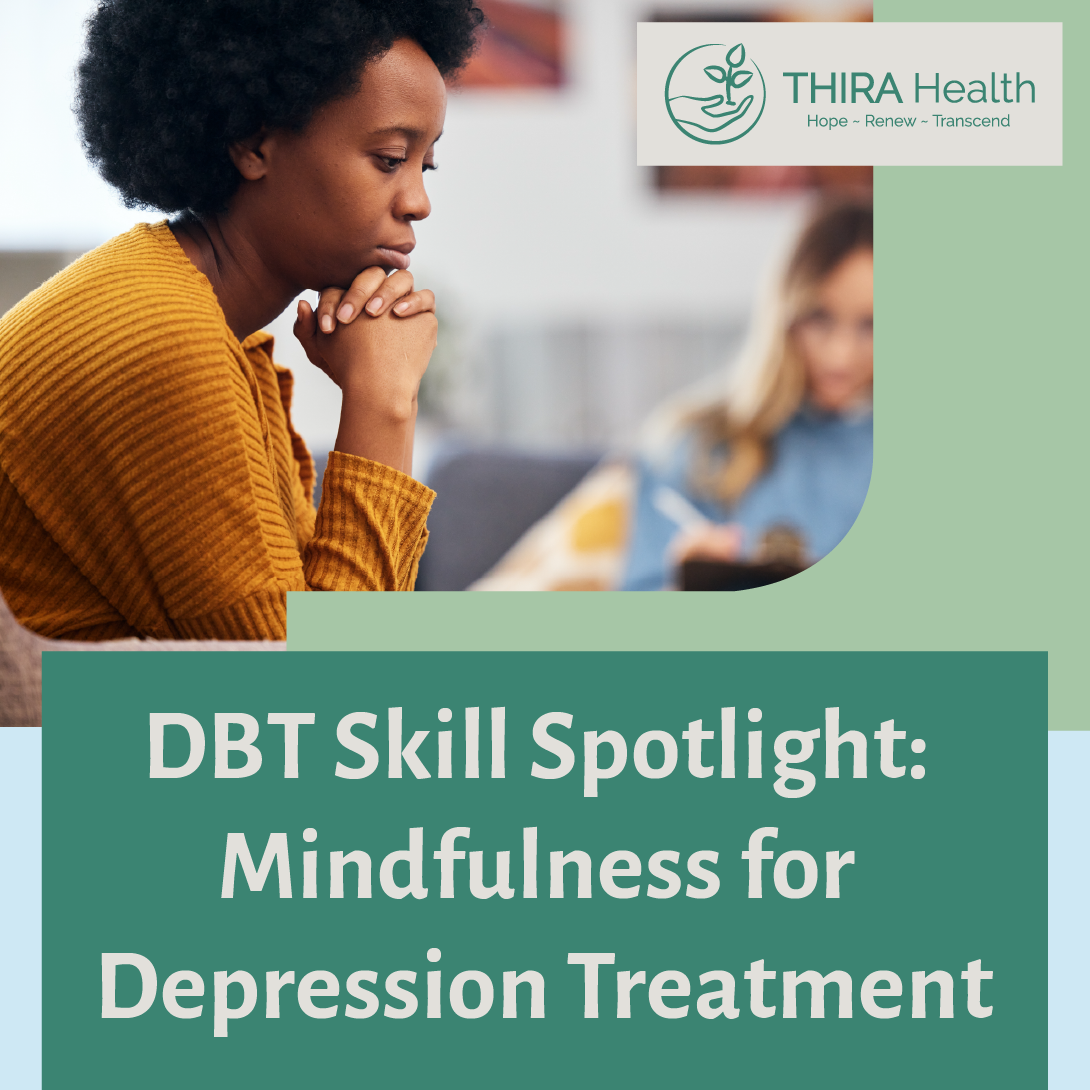Embarking on the journey to better mental health and seeking depression treatment can be a daunting decision, but you’re not alone in your uncertainty. While seeking treatment for mental health concerns may seem like the obvious route to problem-solvers everywhere, research reveals that 45% of individuals living with clinically diagnosed mental health issues choose not to seek professional help. Delving into the factors behind this hesitation unveils the very obstacles we need to tackle head-on, leading us to discover innovative solutions for a brighter mental health future.
As we step into September, a month dedicated to Suicide Prevention on a national scale, it’s a good time for a reminder that common mental health diagnoses—such as anxiety and depression—can be significantly alleviated through therapeutic intervention. To be specific, the therapeutic modality we specialize in at THIRA health, dialectical behavior therapy (DBT), has great outcomes in reducing suicidal behavior and non-suicidal self-injurious behavior, reducing hospitalizations and ER visits, and decreasing symptoms of depression and anxiety. Still, a substantial portion of our population hesitates to access these life-enhancing services.
During this National Suicide Prevention Month, let us remember that many individuals grappling with depression and thoughts of suicide often battle feelings of shame and isolation, which hinder them from seeking the help they urgently need. Our blog today will explore this and the other factors that prevent people from seeking treatment for mental health.
Trusting the Treatment Process
The truth is, it can be intimidating to have to sit in front of a stranger and talk about your fears, feelings and thoughts. Though DBT treatment for mental health is evidence-based and effective, many people still have hesitations about participating in this dynamic.
Identifying barriers is the first step to addressing them and overcoming them. If you have found yourself wondering (or searching the internet):
“Is therapy for me?”
“What is therapy?
“What are some common mental health issues?
Or maybe even the more pointed
“What can long-term depression lead to?”
“What happens if I don’t treat my mental illness?”
“What happens in IOP depression treatment?”
You may resonate with some of these very valid questions people face when reflecting on their mental health and if treatment is right for them.
Reasons People Don’t Seek Treatment for Mental Health
1. Stigma
Stigma refers to the belief that one views themselves, or is viewed by society, negatively or stereotypically because of a mental health diagnosis. Self-stigma can result in rumination, self-sabotage, or even lead to suicidal thoughts. It is the belief that a mental health diagnosis makes you less “normal” than people around you. This internalized fear is a common reason many people do not seek help; at the risk of their friends or family finding out and/or judging them.
2. Culture
Cultural barriers are fairly common when it comes to why people don’t seek treatment for mental health. Language barrier may be an issue, but deeper than that, there could be some disconnect in cultural values that have influence over your current mental health. However, it is possible to find an affirming therapist with a similar background, cultural awareness or experience that can identify with you and provide you with treatment that is culturally specific or sensitive.
3. Affordability
Whether you go to a community provider or private practice, have insurance or pay out of pocket, the financial aspect of therapy or a depression treatment center can be a deterrent for some people. Especially because outpatient therapy is often conducted on a regular (weekly, biweekly, monthly, etc.) basis, and intensive outpatient programs for depression treatment meet 3-5 days a week for hours at a time. Many state and federal policies have been created to advance the accessibility and affordability of mental health care in America. Check what assistance may be available to you, such as a sliding scale fee, discounted self-pay rates or payment plan.
4. Fear
Fear can explain a lot of reasons why people don’t seek mental health therapy: distrust in providers, privacy concerns, stigma, denial and cost as barriers can all be linked to fear to a certain extent. Being vulnerable and sharing your emotions can be very scary. But it is also very brave and can be life-changing. Your therapist has likely heard all these reasons and concerns before and can walk you through the process to make you feel more comfortable with your options.
5. Not knowing where to start
How do you get a therapist? What do you do? What if I don’t like my therapist? It can be intimidating trying to find a therapist that takes into account all the factors in the list above.
→If you’re looking for an outpatient therapist, try looking through reviews and ratings of professionals in your area, consult with your primary care doctor for a routine or referral, or see what providers your insurance covers.
→If you’re dealing with clinical anxiety or depression, borderline personality disorder, or suicidal thoughts and behaviors, you may need a higher level of care and the support of a dialectical behavior therapy center that offers treatment for mental health like THIRA Health.
Depression Treatment at THIRA Health
Treatment for mental health can be life changing and life saving. Life is worth living and your mental health can get better. Since September is Suicide Awareness Month, it is especially important to reevaluate our views on mental health, therapy, supporting each other and asking for help.
Depression can be isolating, but therapy can give you the support, resources and skills you need to find yourself and your happiness again. Need a place to start? Check out our website online for programs and other important information on getting mental health treatment.
No one should have to deal with any mental health issue alone. If you want more information on mental health treatment, do not hesitate to reach out to a professional at THIRA Health today.
If you are currently in crisis, and experiencing overwhelming thoughts of suicide, do not wait for a response from our team. Reach out to either of the hotlines listed below or check in at your nearest emergency department.
Suicide Prevention Lifeline
(800) 273-8255
Crisis Connections
(866) 427-4747






